For the RMG industry, being sustainable is easier said than done

A business owner I know is 100 percent committed to sustainability and to doing the right thing by the planet. The same owner spent many years preparing to develop science-based targets (SBTs). All seemed to be going according to plan until they took a closer look at some of the targets. At that point, it became apparent that the targets were simply unattainable, provided that the business wished to continue growing. As a consequence, they chose not to set SBTs and are now in the process of reconsidering how best to approach this pressing issue.
I've been thinking about this subject a lot lately. Recently, I watched an interesting debate unfold on social media. One person was arguing that companies need to consider "degrowth" or "no growth" business strategies. Degrowth is a radical economic theory that broadly means shrinking rather than growing economies to use less of the world's dwindling resources. A second person was saying that this is simply not realistic, because it would essentially be tantamount to financial suicide. For instance, if a major global retailer announced a degrowth strategy, investors would likely pull out of it while shareholders would become extremely nervous.
To me, the degrowth movement seems to be gaining traction as concerns about the climate grow. Even organisations as prestigious as the World Economic Forum are openly talking about degrowth strategies. But a company adopting such a strategy could face financial ruin – and then what?
Also, which major fashion retailer would be the first to adopt "degrowth" as a strategy? Or would they have to all do it at once in order for it to be effective?
On the one hand, I see a scenario where SBTs are, in some circumstances, extremely difficult – if not impossible – to achieve without making decisions that could affect the long-term financial ability of a company. This could be for many reasons. In some cases, a company might be involved in the sourcing of raw materials with very high environmental footprints. In other circumstances, a company could be sourcing from a country where the national grid has been slow to shift to renewable energy, and so their Scope 3 (supply chain) emissions remain stubbornly high. If there is no adequate alternative sourcing destination, what is that business supposed to do?
Meanwhile, I see many of the world's largest fashion retailers struggling to get Scope 3 emissions under control. In fact, the only time Scope 3 emissions have fallen by any significant extent during the past decade was during the pandemic. But this was inevitable because supply chains were shut down for extended periods at that time.
In the meantime, major fashion retailers report in their annual results that carbon emissions continued to increase. We have seen this with a number of major reports in recent weeks from NGOs and also the UN Fashion Charter, the signatories to which are all struggling to reduce supply chain emissions despite having made commitments to do so.
Big retailers are under enormous pressure to publicly commit to climate goals and reduce supply chain emissions. At the same time, I cannot help but think that they are setting themselves up for failure with some of the targets. I see fashion retailers coming under fire for setting targets that look unrealistic. At the same time, businesses are criticised for not setting targets, being accused of not showing enough ambition.
As a business owner myself, I know how hard it is to make genuine environmental strides. I have invested heavily in various ways to reduce the carbon footprint of my factory. Some investments make a difference quite quickly, but after a while, one experiences diminishing returns in terms of environmental gains. There is no escaping the fact that producing clothes involves many different steps – from the sourcing of raw materials, wet processing, to production, shipping and so on. What I am saying is that there are limits to what can be achieved, even for the most committed sustainability proponent. What then? What happens when you have done all that you can, but your emissions continue to go in the wrong direction?
I cannot speak for other industries, but I think it is hugely important that the fashion industry has an open debate about this issue. Too often, I see the debate around climate change become a finger-pointing exercise, which is a shame because this vital issue requires robust debate involving all industry stakeholders.
Big fashion brands come in for a lot of criticism, and there is so much talk of greenwashing at the moment. On climate, however, I firmly believe there is a genuine desire in some of fashion's most senior people to do right by the planet. Many of these people have families and children. This issue is personal for them and they want to make a positive difference.
Sadly, they are running up against a conundrum that is proving vexing for even the brightest of the industry minds. Business growth and continuity or doing right by the planet – is this the choice we now have to make?
There has to be a third way as the alternative is too dark to contemplate. It's time for us all to sit down and decide what this third way might entail.
Mostafiz Uddin is the managing director of Denim Expert Limited. He is also the founder and CEO of Bangladesh Denim Expo and Bangladesh Apparel Exchange (BAE).

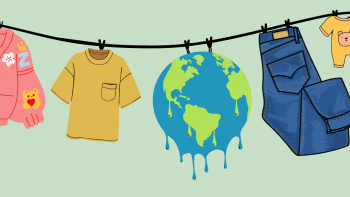
 For all latest news, follow The Daily Star's Google News channel.
For all latest news, follow The Daily Star's Google News channel. 




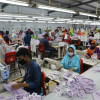
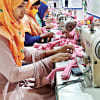
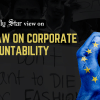
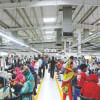



Comments